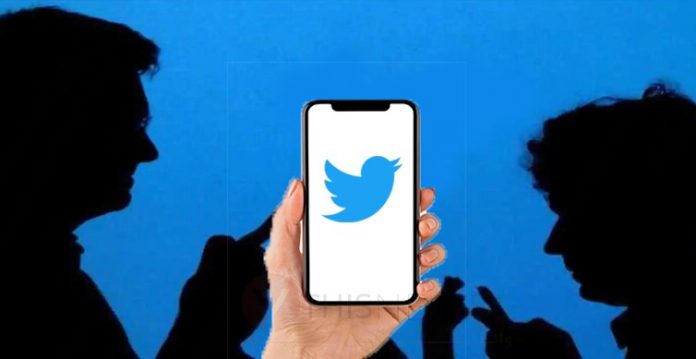By Mitali Srivastava
The Ministry of Electronics and IT (MeitY) sent several notices to Twitter since 31st January 2021 asking the company to block identified content under section 69A of the IT act. The government directive initially ordered to block 257 accounts using the hashtag #ModiPlanningFarmerGenocide including accounts of news magazine The Caravan, Kisan Ekta Morcha, Bharat Kisan Union among others. Most of these accounts have been supportive of the ongoing farmers’ protests against the three farm laws. Twitter did not act upon the order for one whole day and took action suspending identified accounts on February 1 only to restore access within few hours. Twitter argued that since the government had served emergency blocking orders, it complied with the directive temporarily but later restored access as it believed the content was ‘free speech’ and ‘newsworthy’ in line with the Indian law.
Twitter’s action did not go down well with MeitY which subsequently sent an 18-page non-compliance notice to the micro-blogging site. On Monday, 8th February, MeitY sent another list of 1,178 Twitter accounts that it wants to be blocked, flagging the accounts as Khalistan sympathizers and backed from Pakistan. Twitter then reached out to the Union IT Minister Ravi Shankar Prasad for a formal dialogue to resolve the deadlock.
ALSO READ:-SC issues notice to Twitter and Central government over fake content on social media
A similar order was also sent by the government to YouTube and Facebook. Acting on a legal complaint from the government, Google-owned YouTube blocked videos of Punjabi artists Kanwar Grewal and Himmat Sandhu. The videos titled ‘Ailaan’ and ‘Asi Vaddange’ were related to the farmers’ protest and had garnered 60 lakh and 1.3 crore views respectively. A notification placed by YouTube read: “This content is not available on this country domain due to legal complaint from the government”
While Facebook and Google silently accepted the blocking orders, Twitter, following 10 days of back and forth with the IT Ministry, posted a blog post stating that it has withheld few accounts identified in the blocking orders, however, it has not taken any action against accounts that consist of news media entities, activists, politicians and journalists as it believes, the order would violate their fundamental right to free expression.
ALSO READ:-PM Modi Attacks Derek O’brien Over His Freedom Of Speech Remarks
In the blog post, Twitter said that it has taken steps to reduce the visibility of harmful content to comply with the blocking orders and has taken actions including permanent suspension against 500 accounts across all MeitY orders. Twitter strongly noted that the values that underpin the Open Internet and free expression “are increasingly under threat around the world”. It stated that the blocking order was inconsistent with the Indian law and that it shall not impose an outright ban on some accounts, instead it would restrict access within India.
In response to Twitter’s blog post, MeitY posted on homegrown micro-blogging platform and rival of Twitter – “Koo” and described Twitter’s blog post as unusual: “Upon the request of Twitter seeking a meeting with the Govt., the Secretary IT was to engage with senior management of Twitter. In this light a blog post published prior to this engagement is unusual. Govt. will share its response soon.” Ironically, several union ministers are setting up accounts on Koo and posting on Twitter asking the public to follow them on the indigenous site.
On Thursday, the central government categorically cautioned the social media platforms against inciting violence or spreading fake news content. The IT Minister warned in Rajya Sabha that strong action will be taken against the platforms if Indian laws are not abided. He acknowledged the freedom of speech but said that Article 19A also says that such freedom is subject to reasonable restrictions It is also reported that a late-night statement on Wednesday was issued to the senior management of Twitter expressing the central government’s displeasure and deep disappointment with the delay in complying with lawfully passed orders.
Twitter had earlier sparked a series of debates around free speech when it had fact-checked the then US President Donald Trump’s tweets in August 2020 and permanently suspended his account. However, the real challenges lie in a country like India which despite being a democracy is increasingly become intolerant of government’s criticism.
ALSO READ:-Prime Minister Narendra Modi’s address in Rajya Sabha: ‘Andolan Jivi’ are hurting the country
The tussle between Centre and Twitter amid the farmer’s ongoing protests against the farm laws is the recent addition to an already growing list of incidents displaying a constant threat to freedom of speech in India. The current Indian government has been at the receiving end of criticism not just domestically but also faced international backlash recently when prominent international celebrities including Rihanna, Mia Khalifa, Greta Thunberg, and Meena Harris voiced their opinion in favor of protecting the human rights of the protestors. The government had clamped down the supply of, electricity, internet, and water to the protest sites near Delhi border areas of Ghazipur, Singhu, and Tikri – the epicenters of farmers’ agitation. The government has placed multiple barricades at the protest sites with concrete walls and nail beds. Many political analyzers described this as a threat to democracy at its very core.
Earlier in February, eight senior journalists were charged with criminal offenses of sedition and communal disharmony over reporting about the deaths in the protest.


